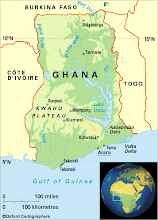Global School Partnerships (GSP)
The GSP schools are a representative group from across the Talensi-Nabdam district. Eighteen schools are looking to partner schools in Milton Keynes and four will be partnering schools in Haverhill, Suffolk. The schools in Haverhill have already been identified and include Walton High’s Leading Edge partner school Castle Manor Business and Enterprise College. I will be working with colleagues on my return to identify another eight schools in Milton Keynes.
Both primary and Junior High Schools are involved in the programme. If successful, the initiative will provide excellent learning opportunities for the children and in staff in both countries.
Below are some of the children and schools in Talensi-Nabdam that will be taking part in the programme.
Takano Junior High School and Pwalugu Primary School
These schools are just off the Tamale Road to the south of Bolgatanga. Just over a thousand children attend the two schools that share the same site.
Students in both the Junior High School and Primary School sit in rows at dual desks. This, and large class sizes, encourages teaching to be very didactic and students’ are usually very passive in their learning.
The students in all the schools visited were exceptionally well behaved and incredibly patient. It is not unusual for students to sit in their classrooms waiting for their teacher to turn up. I came across one class without a teacher and asked where their teacher was - they pointed outside at a teacher asleep under a tree! Teacher absenteeism is a major problem, but due to the centralised system headteachers are powerless to do anything about it. It appears that regardless of how unprofessional or incompetent a teacher is, they cannot be dismissed. The worst that can happen is a transfer to another school.
The headteacher of Takano JHS had a good sense of humour and insisted upon showing me his school’s computer lab. As you can see from the photos below, the name above the door is as far as it goes!
A problem across the district is the recent delivery of new desks – you can see them piled up at the back of this classroom.

The building stock in the District is inadequate to meet the growing demand for education. As mentioned earlier in my blog, as a result many children are taught outside under trees. A number of schools in the GSP programme have problems with their buildings. Pwalugu Primary School has to teach a number of its classes in buildings that are called pavilions.
This is especially unfortunate because the Headteacher has made a real effort to ensure that the proper classrooms provide a good learning environment for the children as seen by the displays on the wall below. Displays on the walls of classrooms are very unusual in Ghanaian schools, but they can make an enormous difference to the room.
Tengzuk Primary School
Tengzuk is a village not far from the GES office in the Tongo Hills. It is famous for its shrine and the whistling noise in the made by the wind in the surrounding hills. All visitors must remove all the clothes on the upper part of their body and leave them as an offering to the ancestors. Needless to say, I was not going to visit any shrine that required me to go bare all!
Tengzuk Primary School has some major issues with its buildings. During the storms of 2007 the roof was ripped off and despite assurances from the District Assembly they are still waiting for it to be repaired. However, notwithstanding the lack of roof, lessons still go on in the classrooms.
The success of the campaign that encouraged parents to send their children to school has been very successful across the District. However, this has put a lot of pressure on school accommodation and led to increased class sizes. This is especially the case in kindergarten and primary schools.

The problem with accommodation was only one of the challenges facing the Headteachers of the schools in the GSP programme. Other issues included the lack of trained teachers and insufficient teaching and learning materials. Hopefully, the partnership will be able to help with some of these issues.
Mole National Park
Over the weekend I met up with Janet and Karen, the other Headteachers who went to Ghana with me, for a very pleasant long weekend at Mole National Park. Mole is Ghana’s largest national park and is located in the Northern Region which s to the south of the Upper East Region. Due to the problems with the car hire company and the condition of the roads it took all day to travel to the Park. However, the journey was worth it for the opportunity to view the animals in their natural environment and for the air conditioning in my hotel room!
Some of the wildlife we encountered on our safaris is shown below.












